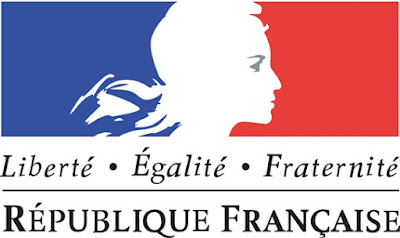Võrdsusest/ About equality
Koeraga jalutades küsiti mult täna hommikul (vene keeles,
nii et pidin end natuke koguma), et mis ma arvan, kas praegusel ajal muutub elu inimeste jaoks rohkem
võrdsemaks. Kogunud end selle teemapüstituse osas, oli kõik mis ma oskasin sel hetkel öelda, et see toimub alateadlikult,
et alateadlikult me muutume kogu aeg võrdsemaks. Sest kuna ma olen ka ise oma enam-vähem kogu teadliku elu võrdsusesse uskunud hoolimata sellest, et elus on seda reaalselt väga vähe näha, siis ma tõesti olen selle peale ka mõelnud ja aru saanud, et
teadlik võrdsus on võimalik ainult individualistlike inimeste puhul. Kui aga
seltskond inimesi, kes on üksteisega enam-vähem võrdsed, otsustavad, et nad
muudavad ka ühiskonda selliselt, et see oleks rohkem võrdne ka
ülejäänute jaoks, siis see on juba eos ette määratult ajutine lahendus sellel
lihtsal põhjusel, et inimesed on nii teaadlikult kui tinglikult öeldes hingelt eri
vanusega. Ja tõeliselt oleme me seega kõik eraldiseisvad riigid- kellel lihtsalt on
suhted teistega. Siin maailmas on hetkel rohkem kui 7,4 miljardit riiki ja
kõige võrdsemad oleme me nendega, kes on meile nii füüsiliselt kui hingelt
kõige lähedasemad. Paljud seda aga mõistavad? Suhteliselt vähesed hetkel veel ja see
näitab ka ära kui vähe on siin maailmas veel teadlikku individualismi, mis looks aluse teadliku ühiskondliku võrdsuse tekkimisele. Aga alateadlikult see toimub sellest hoolimata siiski
kogu aeg ja selle teadvustamiseni jõutakse ka lõpuks- kuna seda lihtsalt ei ole võimalik vältida. Seniks aga saab ühiskondlik võrdsus käia ainult läbi käsu ja sunni ning seda viiakse ellu läbi seaduste ja
normide kehtestamise. Ja paradoksaalselt seeläbi muudetaksegi inimesi aina enam
ja enam individualistlikumaks, see efekt on sisuliselt sama kui me pikaaegne valitseja parempoolne
Reform on kasutanud tulumaksulise võrdsuse ideed selleks, et luua kasu
lähtuvalt parempoolsuse ideest neile, kes on ühiskondlikult justkui
väärtuslikumad- ehk tööandjad ja investorid. Seda alavääristamata on minu suhtumine individualistina sellesse olnud leppimine, sest ma teadvustan endale, et me oleme erinevad ja ma ei ole nendega võrdne oma maailmavaadetes, aga samas kui mul oleks selleks „sotsiaalne
kapital“, et viia läbi muutus, siis võib-olla ma ka teeks seda- samamoodi või
ka teistmoodi nagu hetkel tegid Kesk, Sotsid ja IRL. Sest võrdsus ei teki ilma
tegutsemiseta ega koostööta ja see ei ole ka valmis pakendatud kaup, mille saaks
võtta riiulilt ning öelda- sooh, minu jaoks on nüüd individuaalsuse ning
võrdsuse lagi saavutatud. See on protsess, mis ei lõpe kunagi, aga
see ei tähenda, et võrdsus on saavutamatu ükskõik millisel ajahetkel. Sest võrdsus
on alati võimalik kui inimesed selles omavahel kokku lepivad, aga sundida neid
selleks ei ole võimalik, sest see toimub alateadlikult ja alles siis väljendub ka
väliselt.
While walking with my
dog this morning, I was asked (in Russian, so I had to collect myself to reply)
do I think whether true equality in life is likely for people who live right
now. Being caught there by surprise, all I did say at that moment was that it is happening all the time
in our psyche and unconsciously we keep becoming more and more equal to each other. Because
I have had also myself a great trust in equality whole this life and while
thinking about that, I´ve realized that conscious equality is only possible for
individualistic people. So while a group of people, who consider itself more or
less equal to each other, decide to change the environment in a way that it
would become more equal also for others, it can happen only temporarily
because people have both externally and its seems that also soul-wise different age from each
other. And in real we all are personal countries who are in relations with
others. In the current world is living right now more than 7,4 billion
countries and we are most equal with those, who are close to us both physically
and soul-wise. But how many understand
that? Relatively few yet and it also shows the level of individualism which is
a base for conscious external equality. But despite of that it is happening unconsciously all the time
and people will also be conscious about that eventually. So for the time being,
the external equality can be met only through establishment of law and
regulations. And paradoxically it is exactly the way(or cure) how people keep becoming
more and more individualistic. The effect is the same as the rightist Estonian
Reform Party which has ruled Estonia for a long time and now was finally overthrown by a parliamentary vote of no confidence
this week by central, social-democratic and moderately rightist powers because
they have used for a long time an idea of equal income tax for people in my country to serve the ill-proportional amount
of wealthy people instead of those, who provide them with their turnovers and profits. My individualistic
approach to this has been to settle with this because I´m conscious about the
fact that I am not equal to them in the way how I see the world, but if I had „the
social capital“ do change that, like it was done this week by Centrist,
Social-Democratic and Pro Patria parties, then maybe I would have done exactly
or differently what they did - because there would be no equality
without taking an action when needed and cooperation between people. Equality
is not a pack of goods which can be taken from a shelf and say - okay, this is it, I have reached the peak
of equality and individualism for me. It is a process, which doesn´t end,
but it doesn´t mean that equality is unachievable at any point of time. Because
equality is always possible when people agree on that, but you just can´t make
them to do that, cause it starts within and only then is expressed also on the outside.

Kommentaarid
Postita kommentaar